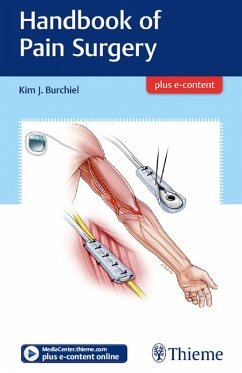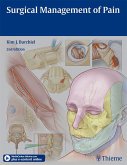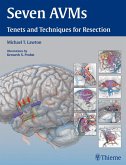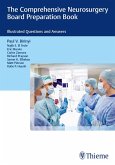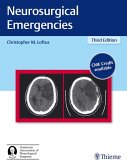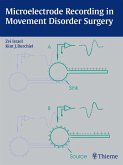Concise handbook on the surgical management of pain by internationally acclaimed neurosurgeon
Functional neurosurgery has experienced unprecedented capabilities because of technological advances in neuroimaging, basic sciences, and increasingly sophisticated therapeutic interfaces. Intractable pain syndromes are among the most prevalent conditions, yet represent one of the most challenging areas of neurosurgery. Handbook of Pain Surgery, edited by esteemed functional neurosurgeon Kim J. Burchiel, explores the science and art of treating patients with intractable pain. The succinct text and videos provide a compact, reader-friendly guide on this unique neurosurgical subspecialty.
Ten chapters on craniofacial pain encompass standard and newer approaches for the treatment of trigeminal neuralgia, including microvascular decompression, rhizotomy, neurectomy, stereotactic neurosurgery, percutaneous radiofrequency, percutaneous retrogasserian glycerol rhizolysis, and percutaneous balloon compression. Other sections detail spinal cord and peripheral nerve stimulation techniques, nonsurgical approaches, and destructive procedures such as dorsal rhizotomy and dorsal root ganglionectomy, CT-guided-cordotomy, and midline myelotomy.
Key Highlights
Highly portable and affordable, this book is an ideal reference for hospitals rounds. It is essential reading for neurosurgical residents, fellows, and practicing neurosurgeons, in particular, those specializing in treating spinal, peripheral nerve, and craniofacial pain syndromes.
Functional neurosurgery has experienced unprecedented capabilities because of technological advances in neuroimaging, basic sciences, and increasingly sophisticated therapeutic interfaces. Intractable pain syndromes are among the most prevalent conditions, yet represent one of the most challenging areas of neurosurgery. Handbook of Pain Surgery, edited by esteemed functional neurosurgeon Kim J. Burchiel, explores the science and art of treating patients with intractable pain. The succinct text and videos provide a compact, reader-friendly guide on this unique neurosurgical subspecialty.
Ten chapters on craniofacial pain encompass standard and newer approaches for the treatment of trigeminal neuralgia, including microvascular decompression, rhizotomy, neurectomy, stereotactic neurosurgery, percutaneous radiofrequency, percutaneous retrogasserian glycerol rhizolysis, and percutaneous balloon compression. Other sections detail spinal cord and peripheral nerve stimulation techniques, nonsurgical approaches, and destructive procedures such as dorsal rhizotomy and dorsal root ganglionectomy, CT-guided-cordotomy, and midline myelotomy.
Key Highlights
- The use of spinal cord stimulation in the management of failed back surgery syndrome
- The pros and cons of nerve surgery for peripheral neuropathic pain
- An overview on intrathecal analgesic therapies including patient selection and implant techniques
- Innovative treatments for intractable pain such as dorsal root entry zone (DREZ) lesioning
- More than 130 superb color illustrations by Andy Rekito elucidate pain syndromes and procedures
- Videos posted in the Thieme MediaCenter provide further guidance on select surgical techniques
Highly portable and affordable, this book is an ideal reference for hospitals rounds. It is essential reading for neurosurgical residents, fellows, and practicing neurosurgeons, in particular, those specializing in treating spinal, peripheral nerve, and craniofacial pain syndromes.
Dieser Download kann aus rechtlichen Gründen nur mit Rechnungsadresse in A, D ausgeliefert werden.

